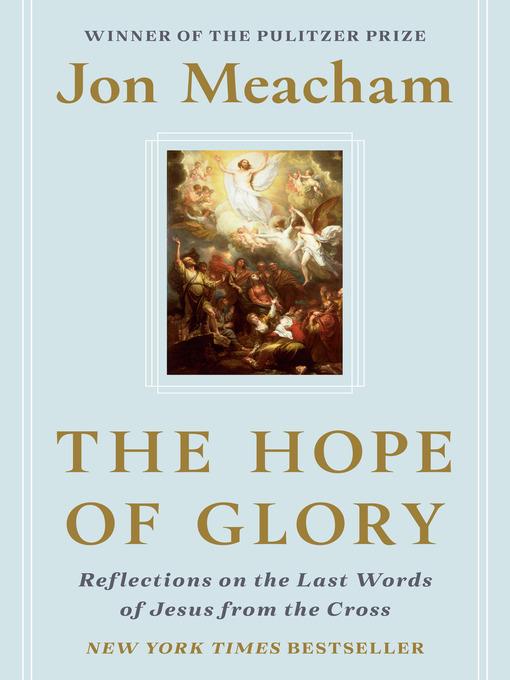
The Hope of Glory
Reflections on the Last Words of Jesus from the Cross
کتاب های مرتبط
- اطلاعات
- نقد و بررسی
- دیدگاه کاربران
نقد و بررسی

January 15, 2020
A new approach to an old Christian subject. Time contributing editor Meacham (Chair, American Presidency/Vanderbilt Univ.; The Soul of America: The Battle for Our Better Angels, 2018, etc.) is best known for his political and biographical writing. He won a Pulitzer Prize for his biography of Andrew Jackson and has written biographies of George W. Bush, Thomas Jefferson, and Benjamin Franklin. In this brief book, the author takes a detour to examine the last seven phrases Jesus spoke from the cross. Because those words have been the subject of endless writings over hundreds of years, readers may question the necessity of exploring them again. Meacham's answer is not to explain what the words mean but rather use them as a springboard for sermons to Episcopalian audiences on Good Friday and the origins of the Christian faith. The author claims that the words cannot be taken literally because the Bible was written centuries ago, either in Greek or in Hebrew that was translated into Greek and then translated into English. All of this can be notoriously difficult to track because the languages are so different and the meanings of words change with time. Still, Meacham approaches his subject from what he calls "Christianity's foundational belief...that Jesus was in fact the 'Christ'--in Greek, the 'anointed one'--who died and rose again to redeem and restore a fallen world that is to be reborn as what John the Divine called 'a new heaven and a new earth.' " On Jesus' apparently forgiving his murderers, the author asks: If Jesus' crucifixion was foreordained by God, why should those who carried out God's wishes be punished? Meacham's answer: Luke included those words so that any Jew or gentile hearing them could feel exculpated from responsibility in his murder. Originally written as sermons and featuring Episcopalian imagery, this book will be most appreciated by devout Episcopalians. A middling contribution to Christian studies.
COPYRIGHT(2020) Kirkus Reviews, ALL RIGHTS RESERVED.

January 27, 2020
In this eloquent yet inconsistent work, Pulitzer Prize–winning historian Meacham (The Soul of America) shares personal reflections on the seven last sayings of Jesus from the cross. He explores how the sayings come from a combination of gospel accounts, explaining how Good Friday sermons usually began with Jesus’s words of absolution (“Father, forgive them, for they know not what they do”) and move toward “surrender to the Father.” Jesus’s dying words can benefit the faithful and faithless alike, Meacham maintains—a perspective that gives his commentary a respectful, comforting tone. In a lengthy prologue and epilogue, Meacham argues that, because God did not dictate Scripture but rather men wrote it, readers cannot know which parts are true and which are embellishments. For instance, contrary to Jesus’s own words (John 14:6), Jesus is not the only way to God, Meacham claims. Yet he acknowledges both the Trinity and Jesus as the Son of God, which will leave Christians wondering exactly where he stands. Though Meacham succumbs to the vagaries of relativism, his ruminations on Jesus’s message of love will appeal to progressive Christians.

























دیدگاه کاربران